Strengthening linkages between FDI and domestic enterprises to support industry development
The processing and manufacturing industry is always the most attractive foreign direct investment (FDI) segment, accounting for 45 per cent of total registered investment capital. However, Vietnamese enterprises are stuck on the lower rungs in the global supply chain.
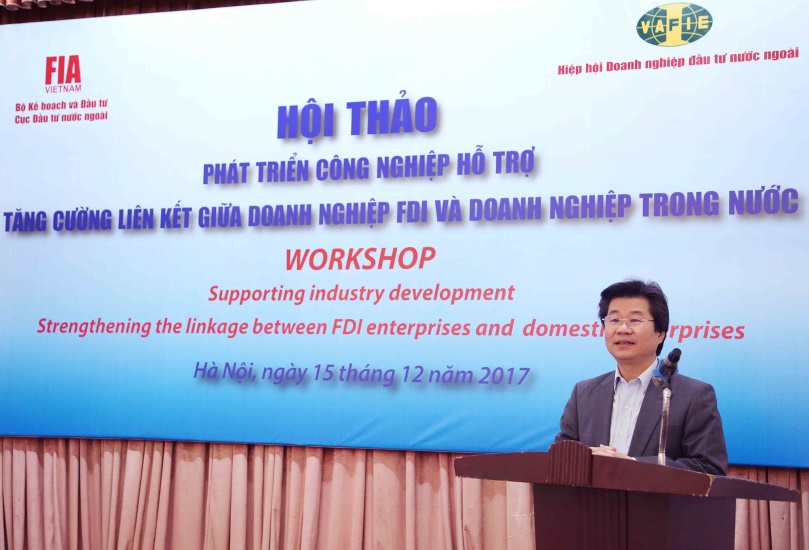
FIA director general Do Nhat Hoang at the workshop
According to data from the Foreign Investment Agency (FIA) of the Ministry of Planning and Investment, in the first 11 months of 2017, FDI attraction hit $33.09 billion and disbursed capital $16 billion, which are the highest figures over the last ten years.
The FDI sector's GDP contribution has been rising to over 20 per cent of the GDP, and 70 per cent of export turnover, creating 3.7 million jobs directly and millions more indirectly.
However, the effects of FDI have so far flown below expectations. The role of Vietnamese enterprises remains limited to the low-added-value segment of the global supply chain.
On December 15, FIA held a Workshop on “Supporting industry development-Strengthening linkages between FDI and domestic enterprises” under the framework of Vietnam's 30-year anniversary of FDI attraction.
The workshop discussed impacts, difficulties, and favourable conditions for domestic firms to take part in the supply chains of FDI firms and offered solutions to strengthen linkages between the two sides to develop the Vietnamese supporting industries.
“Stable politics and reform are important factors to attract FDI. Vietnam will enhance criteria to select FDI projects, focusing on high-technology and spillover projects, while prohibiting projects that could potentially harm the environment,” emphasised Do Nhat Hoang, director general of FIA.
He also confirmed the shortcomings of FDI in supporting industry development and creating linkages with domestic firms. Policies on supporting industry development have been issued slowly and are not commensurate with the socioeconomic situation. The productivity of domestic enterprises is low, does not meet the demand of big global corporations and cannot join the global supply chain.
Thereby, FDI attraction should shift from natural resources and energy-intensive projects to using high-quality labour and environmentally friendly projects. Using and transferring high-technology and ensuring socioeconomic sustainability should also be included in future orientations.
Professor Nguyen Mai, president of the Vietnam Association of Foreign Investment Enterprises (VAFIE), shared some successful models of supporting industry development, such as Samsung, Vinamilk, and Vingroup based on the linkages with other companies and closed supply chains created.
In order to strengthen linkages, Vietnamese firms need to be confident and proactively reach out to FDI firms. They should improve technology and the quality of human resources to take part in suitable production segments in the supply chain.
FDI businesses need to strengthen co-operation and connect with Vietnamese ones, support them to improve corporate governance and transfer technology, as well as find collaboration models to fit each product.
“The government should build policies connecting domestic and FDI firms by incentives, as well as support domestic firms to enhance corporate governance, technology, and human resources quality. Successful cases like Samsung need to be multiplied,” said Mai./.
VNF/VIR
Recommended
 National
National
Vietnam News Today (May 13): Vietnam Maintains High Human Development Index Despite Global Slowdown
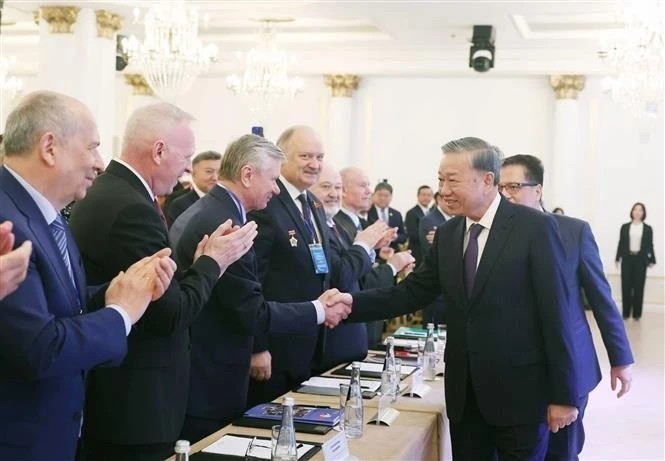 National
National
Vietnam News Today (May 12): Party General Secretary Meets With Russian Experts, Intellectuals
 National
National
Vietnam News Today (May 11): Vietnam, Austria to Boost Cooperation in High-Tech Development, Innovation
 National
National
Vietnam News Today (May 10): Vietnamese Peacekeepers Honored with UN Medal in South Sudan
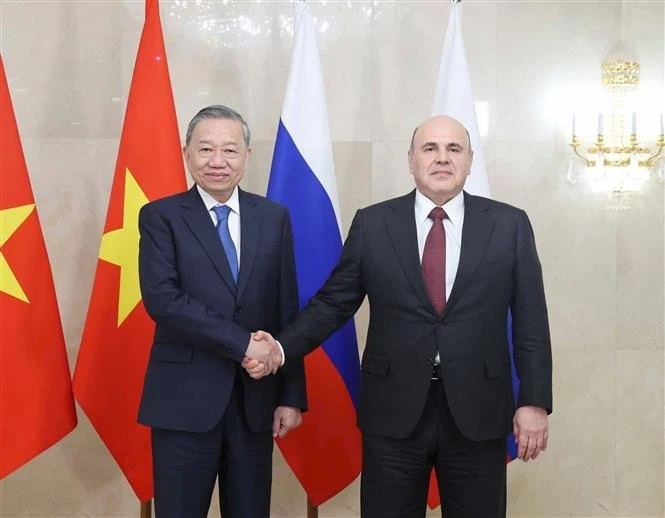 National
National
Vietnam News Today (May 9): Vietnam Ready to Work With Russia to Elevate Relations
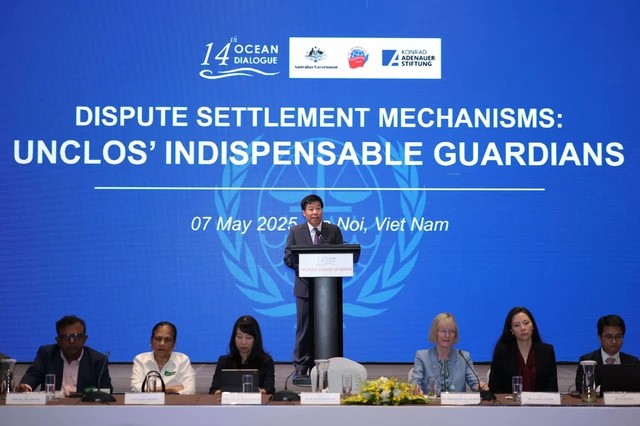 National
National
Vietnam News Today (May 8): Vietnam Remains Committed to UNCLOS
 National
National
Vietnam News Today (May 7): Vietnam Hosts Over 7.67 Million International Visitors in First 4 Months
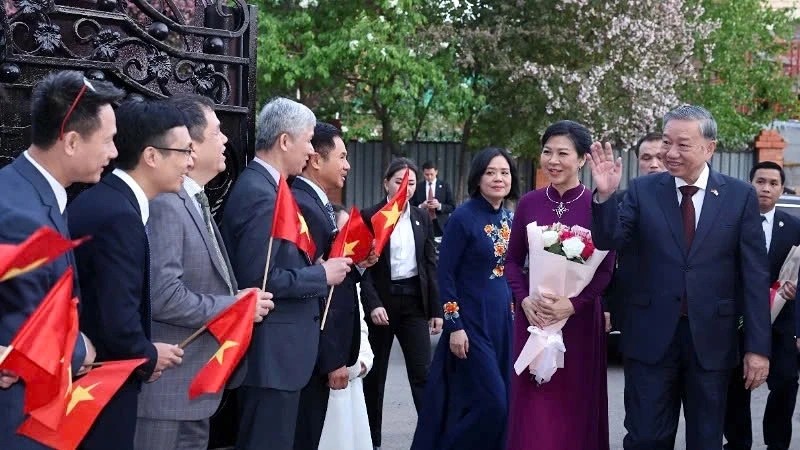 National
National
